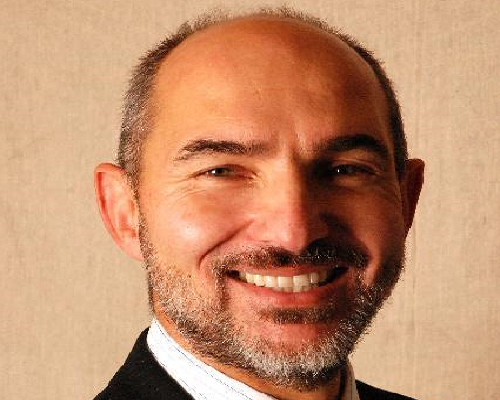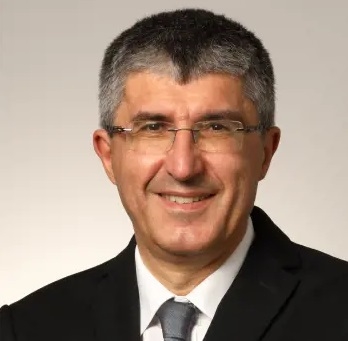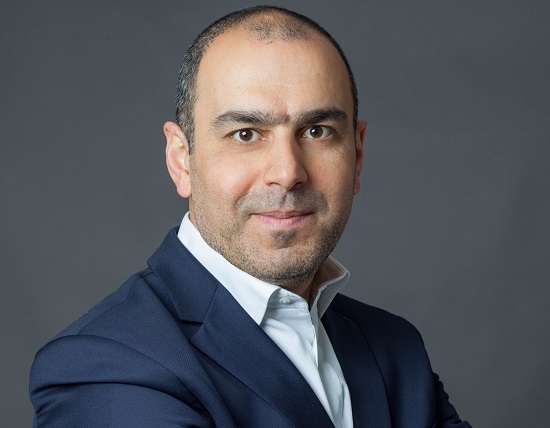Musings on the GameStop saga: Part 3

By Roy Zimmerhansl, practice lead at Pierpoint Financial Consulting
This is the last of a three-part blog post covering the GameStop story.
European Attitudes to Short Selling
This month, the EU ECON committee held a session looking at the US situation to determine whether there was a risk of a similar situation occurring in Europe. Steven Maijoor, Chairman of ESMA and Ugo Bassi, Director, DG FISMA – Financial Markets at the European Commission, made statements and responded to Members’ questions. ESMA rules require greater disclosure of short positions than the US, both to the regulators and the public. I found it somewhat ironic that Mr Maijoor proudly revealed that according to his data, only 20 European stocks had short positions above 10% of free float and that the highest percentage was either 16% or 60%.
Why ironic? As noted above, while sometimes regulators uncover frauds, it’s usually short-sellers or journalists. I guess Mr Maijoor is saying that he is confident that there aren’t any European frauds, although I don’t think anyone anywhere can be 100% confident – scammers have proved time, and again they are good at exploitation and manipulation. Or maybe it’s more the fact that in Europe, there is an ingrained regulatory bias against short sellers, which limits the activity of short sellers in Europe.
Why do I make this assertion?
There are two key reasons. First, there is asymmetry of disclosure. ESMA identifies its short-selling disclosure thresholds as a reason why GameStop can’t happen in Europe, and some US politicians have looked at them with envy. Anecdotally I can tell you that some short sellers I know stay just below the reporting threshold to not draw attention to themselves. That is partly because some companies can be very negative when contacted by funds that have short positions. I get it, but if a company is confident in its business and believes short sellers to be wrong, an intelligent approach would be to meet with the short seller, find out what their concerns are and deal with them factually. If you ask activist short sellers, they will tell you that strongly managed companies don’t spend their time focused on the share price, they concentrate on running their businesses effectively.
The other reason some short sellers stay below the threshold is they don’t want public scrutiny. I can hear some readers now shouting: “A-HA! SEE – if they didn’t have something to hide, they wouldn’t mind the scrutiny”. Given the near-universal condemnation of short sellers that has sprung up in light of GameStop, can you blame them for wanting to stay out of the limelight?
Short positions in European stocks need to be disclosed at a dramatically lower threshold than long investors, and the timing of that disclosure can be months different in timing. One can only assume that European markets appear to accept pump and dump shenanigans as the long disclosure requirements make it incredibly difficult to spot. And if regulators can spot them, why don't they apply those same tools to short sellers rather than have a completely different regime?
Perhaps Europeans are ok with potential manipulation of rising stocks whereas they only manipulation they care about is if stock prices are falling? Or, maybe regulators and investors don’t want to have short-sellers identify potentially fraudulent companies that could be beloved national champions. Without similar levels of disclosure and timing for long and short investors, how can regulators be exercising the same oversight for both? It may be simplistic, but I believe that regulators should be looking for potential risk points or market abuse for both long investors and short investors, and I just don’t see how they do that without equivalent information.
Interestingly, in the US, the only disclosure appears to be for long investors who must disclose once they reach 5% of the company, and nothing is required for short positions at all. It may be that disclosure of short positions may well be one of the outcomes of the Congressional inquiries. If that is the outcome, then I would hope that the timing and thresholds are symmetrical, whether at 5% or some other figure.
If disclosure asymmetry is one example, regulators' actions from the two largest European markets demonstrate the anti-short sentiment more directly. They also explain why some short-sellers stay below the short-selling disclosure limits.
What happened when Zatarra Research published its claims that Wirecard was a fraud? BaFin investigated the individuals raising Wirecard questions at both Zatarra and the Financial Times rather than an investigation into the company. In 2019, BaFin filed a criminal complaint against two Financial Times journalists and several short-sellers. Of course, just over a year later, the short sellers and FT journos were proven right, and the company filed for insolvency. How much wrongdoing could have been prevented had BaFin investigated the company rather than those calling out Wirecard?
Note also that by the time Wirecard collapsed, years after Zatarra and the FT raised concerns, the company was part of the DAX, affecting a massive number of investors, which may be in the millions given the breadth of ETFs and other index-tracking funds that have exposure to the DAX.
How about France’s AMF opening an investigation into Muddy Waters, the hedge fund that raised questions about Casino Guichard’s accounting practices? Instead, it might have behooved AMF to look into the company, which two years later led to Rallye SA, Casino's parent, filing for bankruptcy protection. Casino Guichard was a CAC Mid 60 stock.
My point here is that these companies were not penny stocks or start-ups, they are/were mainstream companies. There is a huge personal toll on the individuals involved in Wirecard, and if you search through the history of companies that have been outed by short-sellers, there are many stories of personal harassment from various authorities.
Potential Regulatory change
Politicians are required to work for the constituents that vote for them. They also need to appear to be working for them. So, they love events like GameStop being thrown into their laps as it allows them to show they are fighting for the people.
Based on the information I have seen so far, it doesn’t appear to me that there has been any wrongdoing by the WallStreetBets (WSB) or Reddit crew. Someone had an idea, proposed it to others, they agreed and moved forward, triggering the buying momentum leading to the eventual short squeeze. While at first blush, it smelled of collusion, I quickly changed my view that it was not.
There are lawsuits against Mr. Gill, and while I am not qualified to comment on whether they have any merit, it looks to me that at best, it is ‘a letter of the law’ versus ‘spirit of the law issue’. Nevertheless, they represent what I was most concerned about from the earliest days I became aware of this phenomenon – inexperienced investors who joined in the fray amid the most volatile action. Someone bought it at $483, and while it might have been a desperate short seller, it might not.
It seems clear that there needs to be more investigation into the platforms' capacity to service their clients. The most unedifying part of this saga was for some services to stop clients from buying fully paid for positions. The silver lining is that there is now a Black Swan event that can be used for modeling collateral requirements. There may be a need for further requirements for the platforms either from the clearing centre or demanded by the clearers for the platforms.
The GameStop short-sellers cumulatively were overextended, and there was no way they could reasonably expect to cover their shorts without a price squeeze or some corporate event that took the value of GameStop lower. The WSB campaign started with a strong investment thesis for a short squeeze. Given that these people, outside the market infrastructure they rail against, discovered the potential for the squeeze in the current information paradigm, I don’t see how increased disclosure changes anything. However, I think this would be long hanging political fruit for politicians, and so if I had to make a bet on change, this would be it. Those imposing such requirements need to be judicious, lest they provide even more air-cover for company fraudsters. Noted short seller Jim Chanos of Kynikos Associates has described this as the “Golden Age of Fraud”. Making short selling more difficult improves the fraudsters’ chances of getting away with it.
Conclusion
Let me be clear – I don’t have a problem with investors being reckless. If Melvin Capital takes positions that they get squeezed on and lose vast amounts of money, so be it. They haven’t asked for bailouts (although they did welcome new investors). Sometimes aggressive trades are successful, sometimes they lose money, and if it doesn’t threaten the economic system, I don’t have a problem with it.
In the same way, if WSB investors want to buy the stock when it is at $300, $400 or more, they should be able to do that. Many of them have said they don’t mind if they lose the money, they are making a protest with their dollars. Terrific – I believe capitalism runs on voting with money, whether it is buying products or buying stocks.
Part of that voting process includes looking for service providers that can meet a client’s needs irrespective of market conditions. The meme stock frenzy created volumes unimagined by the new platform providers, but those skyrocketing prices resulted in conditions that exceeded the capabilities of the providers to service their clients.
Regulators need to oversee markets to look for abuse – long or short, retail or Wall Street. To do that, they need disclosure, but that must be kept symmetrical and not have a bias against either the long or short perspective. They also need to welcome insights from active short-sellers as they need to be for whistleblowers.
I wrote in the opening of this GameStop series, I think that short selling will always be a controversial practice for some. Nevertheless, those decrying the practice are often vague as to why it is a bad practice often making ad hominem attacks. Yet on the positive side of it, the market is better as the academic evidence I have seen, and regulatory acceptance (no matter how reluctant that acceptance is) shows factually that it makes many positive contributions to the market through better liquidity, narrower trading spreads and better price discovery.
While activist short sellers are profit-driven and not crusading superheroes (or anti-heroes) there is also incredible value in having someone rooting out frauds, bad practices and bad products. Ask the patients or their families who suffered or died because of a catheter produced by Penumbra which led to a product recall where the company's CEO acknowledged that the product’s design “made the catheter susceptible to failure in certain situations”. The Consumer Safety guide notes that the devices were linked to at least 14 deaths and the FDA announced the recall is considered Class I, the most serious type of recall. That resulted from an activist campaign initiated by Quintessential Capital Management (Gabriel Grego), followed on quickly by legendary short seller Marc Cohodes. Cohodes also led the charge against MiMedx, which ultimately led to the conviction of the CEO and COO of securities fraud and conspiracy, respectively, at the end of last year. In this case, the FBI went to Cohodes’ home not to investigate his evidence of MiMedx wrongdoing, instead to warn him off challenging the MiMedx CEO publicly, another example of the personal impact being a short seller can have and not just in Europe.
The type of private-sector watchdog role that activist investors play will be particularly important as ESG investing takes hold over the coming years. Greenwashing by companies, investment managers and issuers all need scrutiny as the formal infrastructure evolves and develops.
Of course, there is more to the story and it will develop over time. For example, I haven’t looked at the complex web of connections between the retail platforms, selling order flow, potential for conflict of interest, what the platforms may be doing with margined securities, and more. Another example is how it is possible that more than 100% of the free float can be shorted and whether it should be permitted.
Finally, I think that this episode has made the investment world more open and accessible to the public. That has created new stars on Reddit, YouTube and other places. That of course leads to some information being circulated which is, shall I describe it as ‘less accurate’? On balance, I still think it is better to get more discourse rather than less as that means for a better, more sustainable market over time.
Found this useful?
Take a complimentary trial of the FOW Marketing Intelligence Platform – the comprehensive source of news and analysis across the buy- and sell- side.
Gain access to:
- A single source of in-depth news, insight and analysis across Asset Management, Securities Finance, Custody, Fund Services and Derivatives
- Our interactive database, optimized to enable you to summarise data and build graphs outlining market activity
- Exclusive whitepapers, supplements and industry analysis curated and published by Futures & Options World
- Breaking news, daily and weekly alerts on the markets most relevant to you




